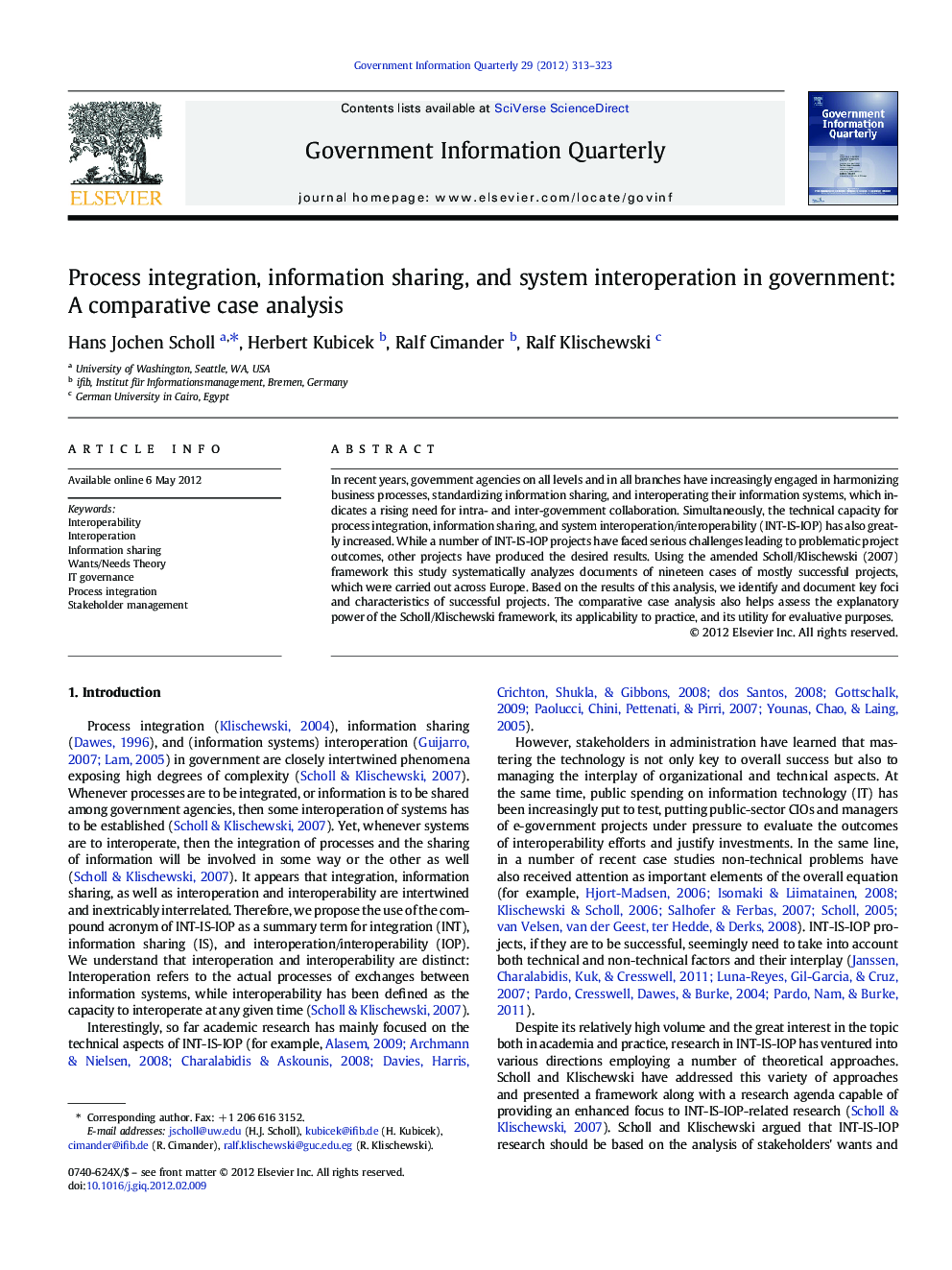| Article ID | Journal | Published Year | Pages | File Type |
|---|---|---|---|---|
| 1024633 | Government Information Quarterly | 2012 | 11 Pages |
In recent years, government agencies on all levels and in all branches have increasingly engaged in harmonizing business processes, standardizing information sharing, and interoperating their information systems, which indicates a rising need for intra- and inter-government collaboration. Simultaneously, the technical capacity for process integration, information sharing, and system interoperation/interoperability (INT-IS-IOP) has also greatly increased. While a number of INT-IS-IOP projects have faced serious challenges leading to problematic project outcomes, other projects have produced the desired results. Using the amended Scholl/Klischewski (2007) framework this study systematically analyzes documents of nineteen cases of mostly successful projects, which were carried out across Europe. Based on the results of this analysis, we identify and document key foci and characteristics of successful projects. The comparative case analysis also helps assess the explanatory power of the Scholl/Klischewski framework, its applicability to practice, and its utility for evaluative purposes.
► We study nineteen European interoperability cases in government. ► We examine the key stakeholders and their wants and needs. ► We also examine the specific limitations and constraints in the projects. ► We further determine the measures of success and failure. ► The extended Klischewski/Scholl interoperability framework was found of high utility.
